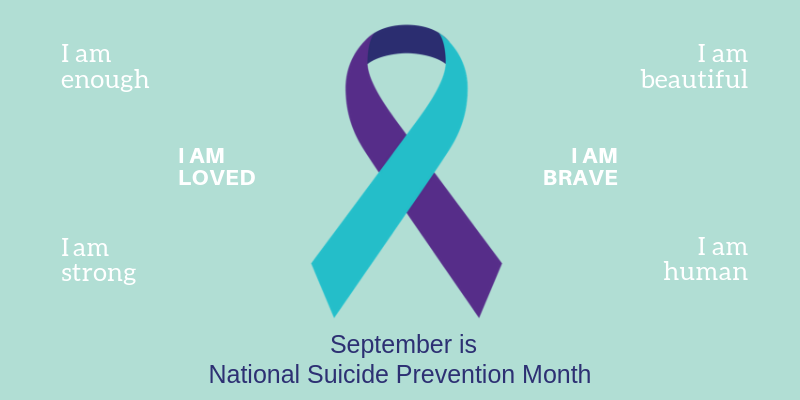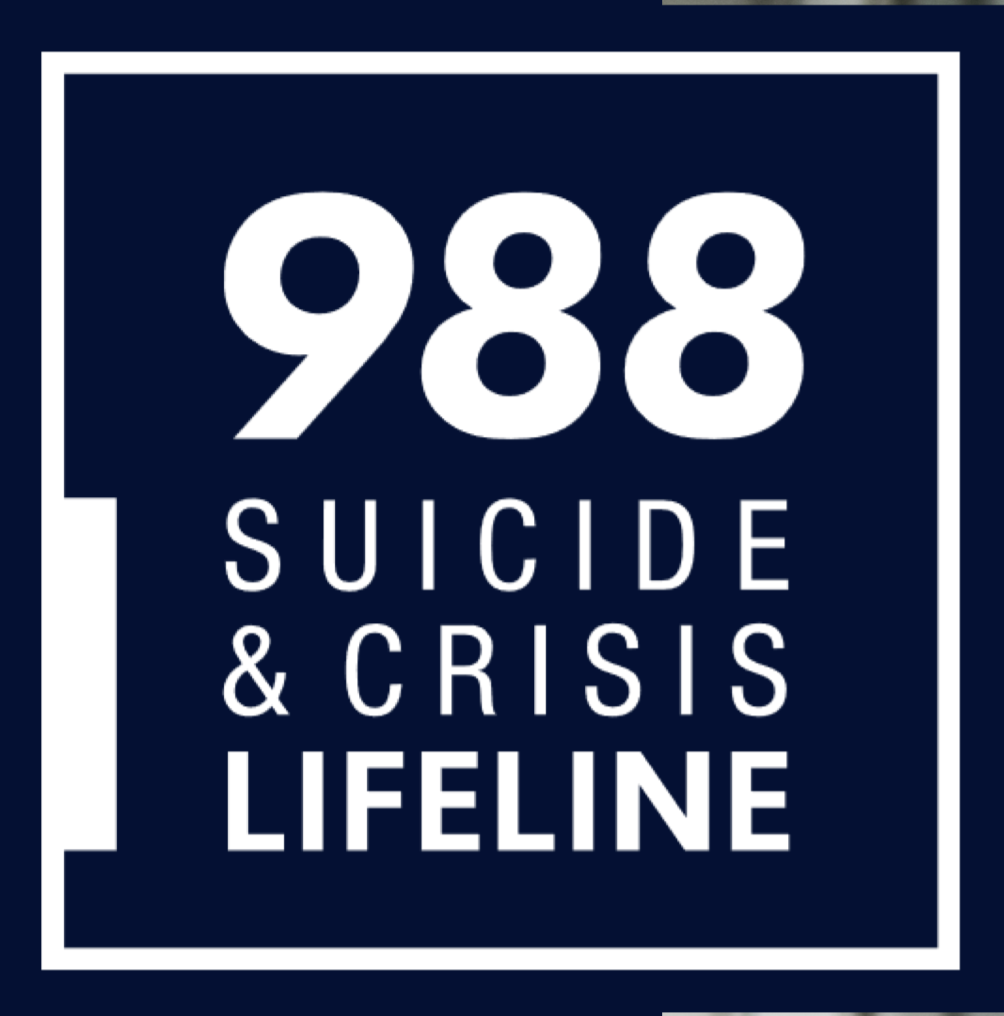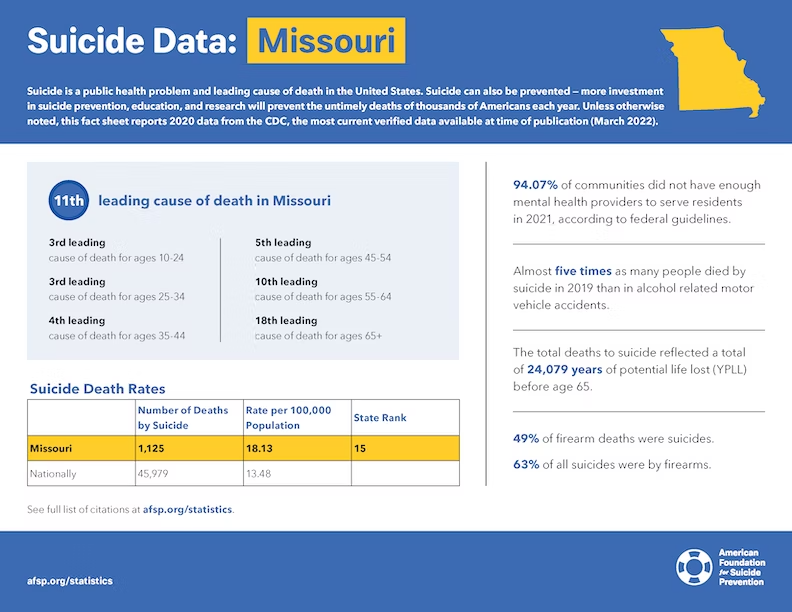What You Can Do To Prevent Suicide

If you or someone you know is considering suicide, call or text the Suicide and Crisis Lifeline at 988 or chat live at 988Lifeline.org. If you’re in Kansas or Missouri, you can also call Camber Mental Health at (913) 890-7468 to find children’s psychiatric treatment near you.
September is National Suicide Awareness Month. This month and all year long, KVC works to raise awareness, reduce stigma and educate people on how to help prevent suicide. In Missouri, suicide is the 11th leading cause of death. To help protect yourself and those close to you from this tragic public health issue, it’s important to understand the warning signs, risk factors and what you can do to prevent suicide.
Provided by the American Foundation for Suicide Prevention
Below are the warning signs and risk factors of suicide, according to Save.org.
Warning Signs of Suicide
These warning signs indicate that someone may need help immediately.
- Talking about wanting to die or to kill oneself
- Looking for a way to kill oneself
- Talking about feeling hopeless or having no purpose
- Talking about feeling trapped or being in unbearable pain
- Talking about being a burden to others
- Increasing the use of alcohol or drugs
- Acting anxious, agitated, or reckless
- Sleeping too little or too much
- Withdrawing or feeling isolated
- Showing rage or talking about seeking revenge
- Displaying extreme mood swings
Risk Factors for Suicide
- Mental disorders, particularly mood disorders, schizophrenia, anxiety disorders, and certain personality disorders
- Alcohol and other substance use disorders
- Hopelessness
- Impulsive and/or aggressive tendencies
- History of trauma or abuse
- Major physical or chronic illnesses
- Previous suicide attempt
- A family history of suicide
- Recent job or financial loss
- The recent loss of a relationship
- Easy access to lethal means
- Local clusters of suicide
- Lack of social support and sense of isolation
- The stigma associated with asking for help
- Lack of health care, especially mental health and substance abuse treatment
- Cultural and religious beliefs, such as the belief that suicide is a noble resolution of a personal dilemma
- Exposure to others who have died by suicide (in real life or via the media and Internet)
What You Can Do
 Everyone has a role to play in preventing suicide. Increasing the connections among family members and others in your circle of reach can play a major role in preventing suicide, according to the Suicide Prevention Resource Center. Research also shows that people having thoughts of suicide can experience relief when someone simply reaches out to them and inquires about their feelings. Connecting your loved one to a support system, such as a hotline, family member, friend or therapist, has shown to be effective in preventing suicide.
Everyone has a role to play in preventing suicide. Increasing the connections among family members and others in your circle of reach can play a major role in preventing suicide, according to the Suicide Prevention Resource Center. Research also shows that people having thoughts of suicide can experience relief when someone simply reaches out to them and inquires about their feelings. Connecting your loved one to a support system, such as a hotline, family member, friend or therapist, has shown to be effective in preventing suicide.
Being aware of the warning signs and risk factors above will help you identify when friends, family or someone you know starts to exhibit these behaviors. In many communities, suicide carries a negative stigma that prevents some people from seeking help. Keep an open mind when talking to others about their feelings and make sure not to promote this stigma. Also, be encouraging when urging someone to seek help, whether through a mental health professional, a visit to the emergency room or by calling the 988 Suicide and Crisis Lifeline.
Visit the 988 Suicide and Crisis Lifeline website for more information.






